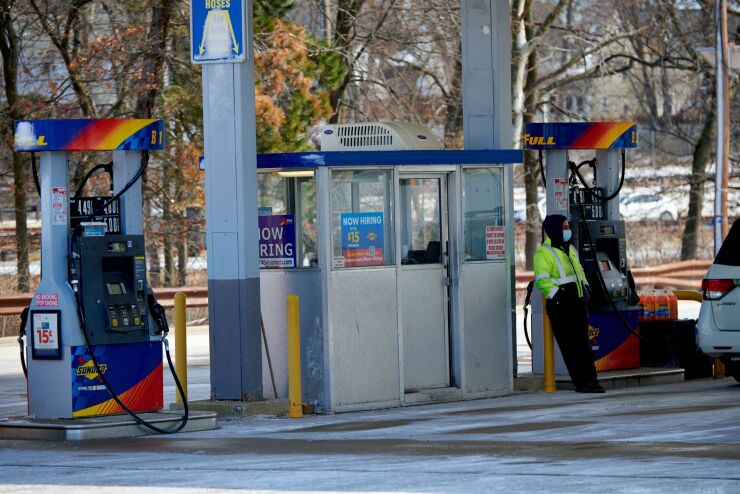Starting in October, New Jersey motorists will pay almost a penny more per gallon for gas following a worse-than-expected year for state fuel tax revenue, officials announced.
State Treasurer Elizabeth Maher Muoio said
Revenues fell $8.2 million below estimates set last August, Muoio said, while fuel consumption remained 7.6% below pre-pandemic levels prompting analysis by officials that "dictates a 0.9 cent increase" Oct. 1.

The bump will raise the tax rate from 30.9 cents to 31.8 cents per gallon for gasoline, and 34.9 cents to 35.8 cents per gallon for diesel. That comes on top of an existing Motor Fuels Tax, fixed at 10.5 cents per gallon for gasoline and 13.5 cents for diesel fuel.
Under a 2016 law, New Jersey used the adjustable petroleum products tax to fill its Transportation Trust Fund program, which is meant to provide approximately $16 billion over eight years for infrastructure improvements to roadways and bridges.
Gas tax revenues must reach $2 billion annually to meet that goal and officials from the state's Treasury and the Legislative Budget and Finance Office meet annually to adjust the rate to ensure it's generating enough.
The rate was
The adjustments can go both ways: in 2021, the tax was reduced 8.3 cents per gallon and in 2022 dropped another one cent. In total, the per-gallon rate will be 5.2 cents higher than in 2017.
With weak performance this year, the rate increase was a necessary measure to meet TFF funding dedications, treasury officials said.
Officials predict fuel consumption in 2024 across New Jersey to increase a modest a 1.4%, contained by "remote work and increasing fuel efficiency," the treasury statement said.
In May, the New Jersey Transportation Trust Fund Authority sold $1.1 billion of transportation program bonds.
The deal was rated A by Fitch Ratings, A2 by Moody's Investors Service, A by Kroll Bond Rating Agency and A-minus by S&P Global Ratings.
All hold the transportation trust fund bonds one notch below New Jersey's
Moody's said the rating incorporated the "contingent nature of the state's payment obligation, which depends on the annual legislative appropriation of funds."





